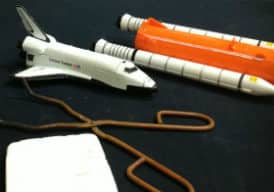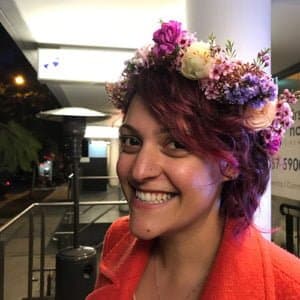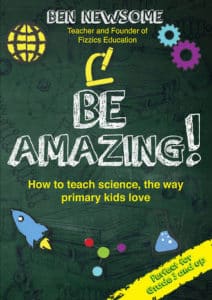
This is a significant weekend for science. At 1.25am AEST Saturday, Space Shuttle Atlantis is scheduled to be launched into space for the 33rd and last time. As I was reading up on facts for a post about the final launch of Atlantis, I found out that it is also the final launch of the NASA Space Shuttle program – making this launch the end of an era for human space travel and exploration.
The NASA Space Shuttle program has been launching six reusable vehicles into low-Earth orbit (an orbit about 400 km above the Earth’s surface) since April 12, 1981. It was announced by President Richard Nixon in 1972, and it was designed to give NASA direction after they had beaten the Russians to the Moon. The main role of the program has been launching satellites into orbit and sending the crews for the construction and maintenance of the International Space Station. After Friday’s launch, it will have flown 135 missions in 30 years. The successor to the space shuttle program, the Cygnus, was supposed to be ready for testing in late 2010, but that date has been pushed to late 2011 – although even this doesn’t seem likely. It used to be that the Americans cared with keeping up with the Russian and Chinese space programs, but there is far less investment being put into space launches. This is probably because the average launch costs somewhere in the ballpark of 400 million dollars.
After this final launch, the US Space program will be taking a back seat to the Russian and Chinese programs, which will both remain very active and continue to service the International Space Station. The US still plans to send a mission to Mars in 2030, but there is a lot of work required before this can happen. The American economy has suffered in the last few years and so there is far less money being put Space research and exploration. The US beat the Russians to the Moon, but it seems that maybe the Russians will beat the US to Mars.
For instructions on how to make your own rockets and other Space experiments that you can do to celebrate the Space Shuttle launch, click here!
STOP PRESS: To date, there have been 134 successful space shuttle launches but 500 launch attempts. This is because there are a lot of things that can get in the way of a space shuttle launch, particularly weather. Space shuttle launches are best held near the equator as the relative speed of the Earth’s rotation is faster because it is further from the axis. This is why the main base for NASA’s operations has been Cape Canaveral in Florida. Unfortunately, tropical climates don’t have the greatest weather for shuttle launches – often causing delays. At the time of writing, 12 hours before the scheduled launch, the weather over the launch site is not looking friendly and the launch team are determining whether the launch is going to take place as scheduled.
UPDATE: Atlantis lifted off successfully on schedule, with a slight glitch at t minus 31 seconds to liftoff when an indicator failed to show that a Gaseous Oxygen Vent Arm had successfully latched. The first day in space has appeared to go almost completely to plan, and the shuttle is scheduled to dock at the International Space Station for the last time at 1.00 AM AEST on Monday.
Bye for now!
Holly Kershaw.
Explore space further with the Fizzics team!

NEW Primary science teaching book!
“Be Amazing! How to teach science, the way primary kids love”



























Comments